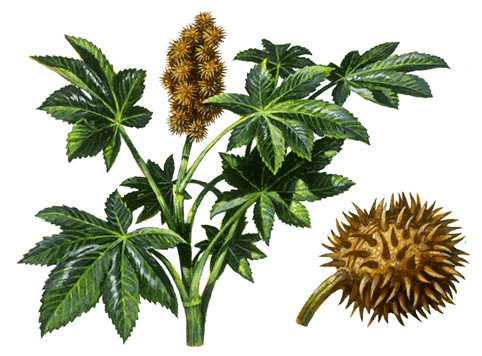Castor oil is a colorless oil that is used as a laxative. When fresh, it is clear and sticky. Castor oil gently irritates the walls of the intestines and causes them to function. If used too frequently, it may cause constipation. Castor oil is used as a medicine, but most of the world’s supply is used in industrial processes.

The castor tree grows in many tropical countries, especially Brazil and India. The plant grows up to 40 feet (12 meters) high in tropical climates. In colder climates, it grows as an annual no more than 15 feet (4.6 meters) high. The spiny capsules (fruits) contain the beanlike seeds. The seed is poisonous if eaten. A deadly poison called ricin can be extracted from castor seeds. Castor oil for medicinal use is obtained from the seed, leaving the poison in residue, by a process called cold pressing. Further processing of the poisonous residue by solvent extraction yields more oil for industrial use. Industry uses castor oil in the manufacture of paints, varnishes, and dyes. The oil is also used as a lubricant for boat and airplane engines.
See also Vegetable oil (production).
